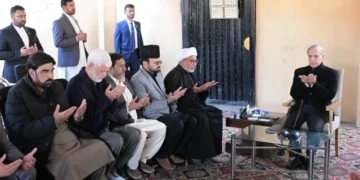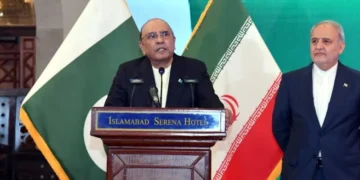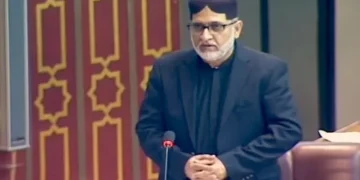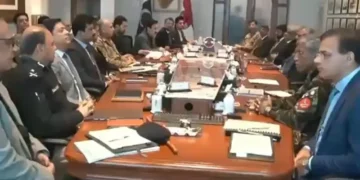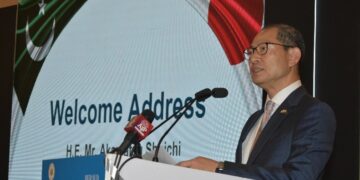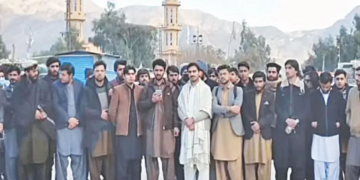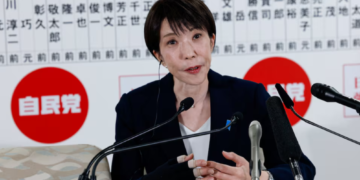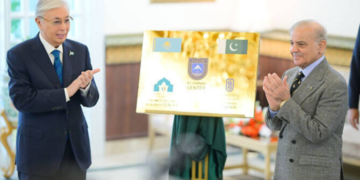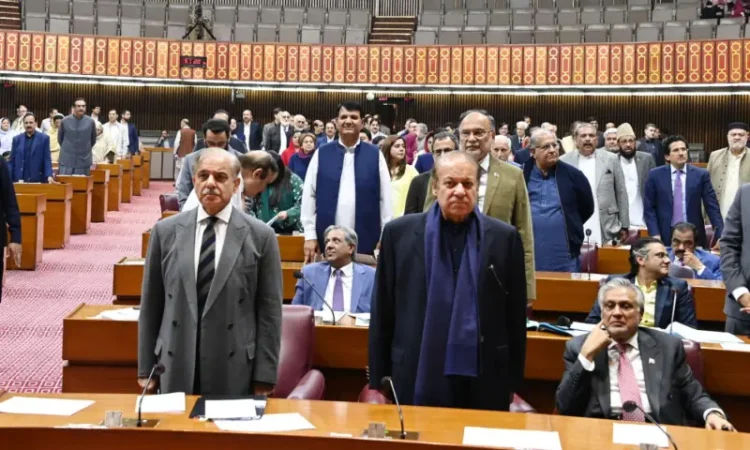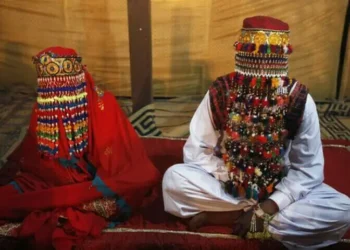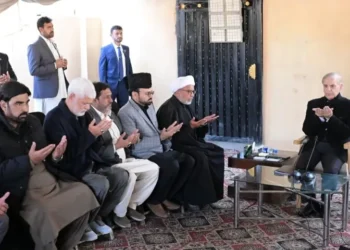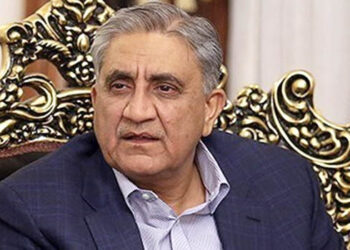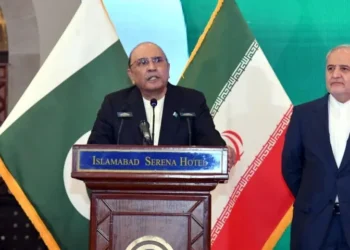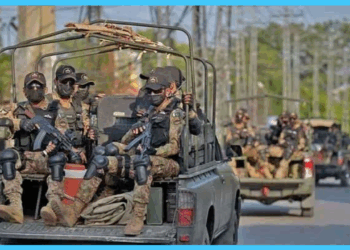ISLAMABAD; In a stormy, often chaotic sitting on Wednesday, the National Assembly approved the 27th Constitutional Amendment Bill after a division and clause-by-clause vote.
The session, attended by Prime Minister Shehbaz Sharif, PML-N supremo Nawaz Sharif and PPP chairman Bilawal Bhutto-Zardari, was marked by passionate speeches, repeated interruptions from opposition benches and dramatic scenes of lawmakers tearing copies of the bill.
Speaker Ayaz Sadiq announced that the amendment was carried with 234 votes in favour and four against. The bill — which proposes creation of a Federal Constitutional Court (FCC) and contains changes affecting the military command structure and other institutional arrangements — will now be sent back to the Senate for consideration of the new amendments before final passage by the upper house and presidential assent.
Prime Minister Shehbaz Sharif began by hailing the passage as a demonstration of solidarity and national unity. He thanked lawmakers on his own behalf and “that of the nation”, paid tribute to the late PML-N senator Irfan Siddiqui as the “teacher of teachers” and lauded security agencies for their handling of recent terror incidents.
Referring to the Wana operation and the raid on terrorists holed up in an educational institution, he praised the professionalism of the army and law enforcement that “saved the nation’s youth”. He condemned the Islamabad suicide blast and accused “terrorist enemies” of being involved in attacks carried out from Afghan soil, reiterating Islamabad’s long-standing demand in talks with Kabul: curb militants based in Afghanistan.
Shehbaz said Pakistan sought peace and wanted Afghanistan to be an “equal partner” — but warned that promises without action would not be acceptable. He defended the amendment as the fulfilment of parts of the Charter of Democracy — including the goal of a constitutional court — and thanked allies and opponents who engaged in consultation.
He repeatedly credited the Pakistan military’s performance in the May conflict for enhancing the country’s global standing and said that national unity justified the honour of conferring field-marshal rank on the army chief; he also stressed that the Supreme Court’s chief justice would continue to head the Supreme Judicial Council and other constitutional bodies.
The session quickly turned fractious. As Shehbaz, Nawaz and Bilawal entered the chamber, PTI members tore up bill copies and hurled them toward the prime minister’s chair. PML-N MPs formed a human shield around the premier and his father to prevent any breach. Opposition members gathered at the speaker’s dais in protest and staged a walkout after vocally registering grievances.
Law Minister Azam Nazeer Tarar, who tabled the bill, addressed repeated criticisms from the opposition. He argued the amendment removed confusion over continuity of the Chief Justice of Pakistan’s position and clarified Article 6 and other constitutional uncertainties.
He accused PTI of selective memory and hypocrisy — pointing to past events when constitutional norms were violated — and berated the party for boycotting consultations and committee meetings. Tarar insisted the amendment aimed to improve governance, defence and administration of justice, not to protect individuals, and challenged the opposition to point to alternative language if they had it.
PPP chairman Bilawal Bhutto-Zardari rose to address the house amid noisy slogans and disruptions by PTI supporters. Unbowed, he condemned recent terror attacks and called for national unity against the “enemies of the country”.
Bilawal argued the 27th Amendment implements unfulfilled aims of the Charter of Democracy — creating constitutional courts and protecting the field-marshal rank in law — and defended PPP’s decision to support the government as an effort to consolidate civilian supremacy and institutional reform.
He said there was no contradiction between strengthening provinces and a strong centre and insisted that rollback of the 18th Amendment or unilateral changes to NFC shares were not on the agenda.
PPP lawmaker Nafisa Shah gave a detailed defence of her party’s role, stressing that controversial proposals limiting provincial autonomy, NFC shares or dual-nationality restrictions had been excluded thanks to PPP objections.
She flagged that Article 163-A (related to NFC shares) was not included and said that was deliberate — the provincial rights from the 18th Amendment remain intact. On judicial reforms, Shah framed the FCC as a safeguard against judicial overreach and the doctrine of necessity that historically dismissed elected institutions. She argued judicial transfers should not be used as “arm-twisting” tools, and that the changes proposed should protect judicial independence while preventing extra-constitutional rulings.
PTI leaders mounted fierce criticisms. Barrister Gohar Ali Khan and other PTI speakers accused the government of engineering an “elite” or protective constitutional package, warned of weakening democracy, and called for apologies for past constitutional violations.
Shehryar Khan Afridi described parts of the amendment — including a proposed lifetime immunity for the president from certain criminal proceedings — as a travesty that would “humiliate” Pakistan on the world stage. PTI members staged walkouts and tore up bill copies repeatedly to dramatize their rejection.
Speaker Ayaz Sadiq repeatedly appealed for dialogue, offering to facilitate talks between the government and opposition. He urged opponents to abandon confrontation and engage in clause-by-clause discussion — an offer echoed by a number of MPs who said institutional mechanisms exist to resolve disagreements.
Other participants included MQM, PkMAP, ANP, JUI-F and many former officeholders, judges, lawyers and civil society representatives. The debate recalled the controversy around the 26th Amendment last year, which itself had been contentious and faced claims of coercion and court challenges. Ministers argued the current amendment had been debated with consultations across allied parties and that technical legal inputs were considered in drafting.
As the assembly moved the bill through its procedural stages, Information Minister Attaullah Tarar insisted that had the opposition engaged constructively, a more consensual text might have emerged. Defence Minister Khawaja Asif, MQM’s Mustafa Kamal and others touched on related governance and local government issues that would be handled in future amendments.
The bill now returns to the Senate to consider the House’s amendments; once both houses agree and the president assents, the constitutional changes will take effect. The passage has deepened the political divide — with proponents framing it as state-building and opponents calling it a dangerous constitutional overhaul — and set the stage for further legal and political battles.

